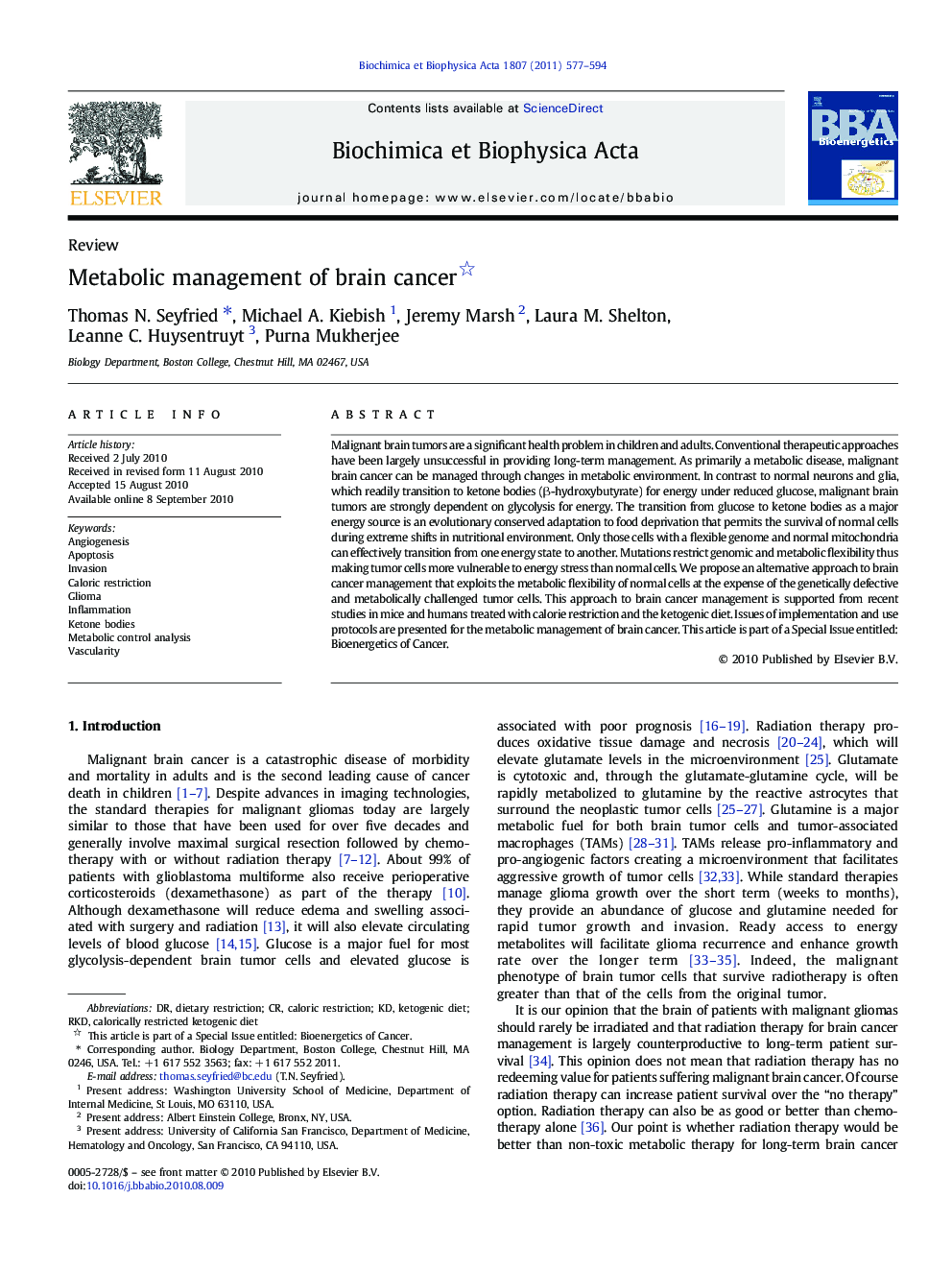| Article ID | Journal | Published Year | Pages | File Type |
|---|---|---|---|---|
| 1942700 | Biochimica et Biophysica Acta (BBA) - Bioenergetics | 2011 | 18 Pages |
Malignant brain tumors are a significant health problem in children and adults. Conventional therapeutic approaches have been largely unsuccessful in providing long-term management. As primarily a metabolic disease, malignant brain cancer can be managed through changes in metabolic environment. In contrast to normal neurons and glia, which readily transition to ketone bodies (β-hydroxybutyrate) for energy under reduced glucose, malignant brain tumors are strongly dependent on glycolysis for energy. The transition from glucose to ketone bodies as a major energy source is an evolutionary conserved adaptation to food deprivation that permits the survival of normal cells during extreme shifts in nutritional environment. Only those cells with a flexible genome and normal mitochondria can effectively transition from one energy state to another. Mutations restrict genomic and metabolic flexibility thus making tumor cells more vulnerable to energy stress than normal cells. We propose an alternative approach to brain cancer management that exploits the metabolic flexibility of normal cells at the expense of the genetically defective and metabolically challenged tumor cells. This approach to brain cancer management is supported from recent studies in mice and humans treated with calorie restriction and the ketogenic diet. Issues of implementation and use protocols are presented for the metabolic management of brain cancer. This article is part of a Special Issue entitled: Bioenergetics of Cancer.
Research Highlights► Most cancer, including brain cancer, is primarily a disease of energy metabolism. ► Current standards of care for brain cancer management can provoke brain cancer growth and recurrence. ► Brain tumors use glucose and glutamine as major metabolic fuels, but do not use ketone bodies. ► Non-toxic calorie restricted ketogenic diets target glucose and glutamine and are anti-angiogenic, anti-invasive, and pro-apoptotic. ► Brain cancer can be managed based on principles of evolutionary biology, metabolic control analysis, and the Warburg theory of cancer.
